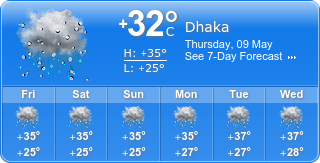Bank of Japan gloomier on economy but maintains policy
Tokyo (AFP) - The Bank of Japan issued a more downbeat assessment of the world’s third biggest economy Friday, as a broader global slowdown impacts exports and production.
The central bank kept its ultra-loose monetary policy in place after a two-day policy board meeting, as it battles to safeguard fragile growth and kindle inflation that is stuck stubbornly below its two-percent target.
The bank added to its monetary policy statement the view that “exports and production have been affected by the slowdown in overseas economies”.
But the BoJ also argued that “Japan’s economy is expanding moderately” and maintained its aim of keeping the short-term policy interest rate around minus 0.1 percent and the yield on 10-year bonds around zero.
BoJ Governor Haruhiko Kuroda argued that the momentum for Japan to achieve its inflation target remained intact, with the Chinese economy – a key driver of world growth – likely picking up in the second half of the year.
“It is our belief that the momentum for achieving two percent has been maintained,” he told a press conference.
“It is important that we achieve it in order for us to fulfil the Bank of Japan’s duty to stabilise prices,” he said.
An analyst said Kuroda had no choice but to stay the course.
“The central bank’s stated goal remains two-percent inflation and current price levels are not high enough to justify tightening,” said Katsunori Kitakura, lead strategist at Sumitomo Mitsui Trust Asset Management.
“While the risk of a global economic slowdown exists, monetary policy in Japan has gradually shifted from ‘normalisation’ to ‘further relaxation’.”
Kuroda has come under fire over the effectiveness of his monetary easing programme and how he intends to return the bank’s policy to normal.
In January, the governor was forced to revise down the BoJ’s inflation forecasts, a step seen as further evidence that authorities are unable to boost prices.
The bank wants to achieve stable growth with prices rising two percent a year, but it expects inflation for the fiscal year ending next March of 0.9 percent.
The central bank’s measured downgrade of the Japanese economy comes as economists are increasingly viewing China with caution.
Beijing’s decelerating exports and imports, as it battles a tense trade row with the United States, have contributed to Japan’s expanding trade deficit, with China-bound exports in January falling 17.4 percent, the sharpest drop since January 2016.





No comments